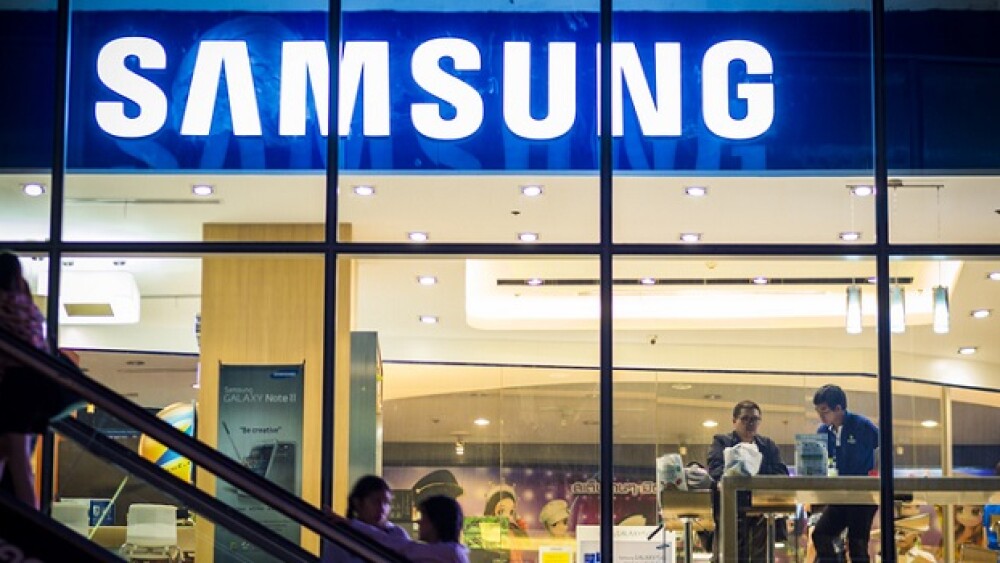Most of Samsung’s investment will be in South Korea, and it expects to create 80,000 new jobs through 2026, or about 16,000 positions annually.
Courtesy of Holgs/Getty Images
South Korea-based Samsung announced its plans to invest 450 trillion won (almost $355 billion USD) through 2026 into its core businesses.
The conglomerate has many moving parts, and most people are aware of its consumer electronics firm. However, biotechnology is also a big part of its business.
Most of the investment, $285 billion, will be in South Korea. It expects to create 80,000 new jobs through 2026, “or about 16,000 positions annually,” the company said in a statement. Samsung had previously planned to create 40,000 jobs from 2021 to 2023. The investment plan includes a 30% increase from what it has spent in the previous five years.
Samsung Biologics, a contract development and manufacturing organization (CDMO), staffs more than 4,200 people and has more than 90 global clients. On April 27, it reported its first-quarter financials, citing KRW 511.3 billion (about $396 million U.S.). It is expecting its Plant 4 manufacturing facility to be partially operational by October 2022 to support 6 X 10KL production capacity. It is also in the process of acquiring 350,000 square meters of land for its second bio campus.
On April 20, Samsung Biologics announced it had completed the acquisition of Biogen’s stake in the Samsung Bioepis joint venture for $2.3 billion (U.S.). Samsung Bioepis is now a wholly-owned subsidiary of Samsung Biologics.
“Today’s announcement marks a significant milestone for Samsung Biologics in our continued venture into the biosimilar business and accelerating biosimilar growth,” said John Rim, chief executive officer and president of Samsung Biologics, at the time. “By leveraging our extensive experience as a leading CDMO, we will further contribute to saving lives of the patients and address a wide array of diseases.”
Although most of the new jobs are expected to be in South Korea, Samsung conducts research and development worldwide, including in the U.S., UK, Canada and the Philippines.
In December 2021, Samsung Biologics announced plans to manufacture Moderna’s COVID-19 vaccine for use in South Korea, as well as for export to other countries, such as the Philippines and Colombia.
Also, in mid-December, Samsung Biologics and AstraZeneca entered a strategic collaboration deal based on an expanded deal in May 2021, which followed an original agreement in September 2020. Under the new agreement, worth about $380 million, up from an initial $331 million, Samsung Biologics manufactures AstraZeneca’s COVID-19 long-acting antibody combination, AZD7442. It also will be manufacturing a cancer immunotherapy product for AstraZeneca this year.
And, of course, Samsung’s investment in electronics and computer chips has an impact on biopharma and life sciences, with the increased use of wearables and smartphones for health monitoring and in clinical trials. In a May blog post, Samsung discussed Samsung’s partnership with Google on a new Health Connect solution. The new Health Connect API will give users a comprehensive set of controls to manage their health and fitness data across apps and support more than 50 data types, such as exercise, sleep, heart rate and more.
It’s not clear how much of Samsung’s $356 billion will go directly into its biopharma activities. However, the company indicates that its plans to hire 80,000 people is just the tip of the iceberg and that its expansion will create 1 million jobs, both through its vendors and indirectly.





